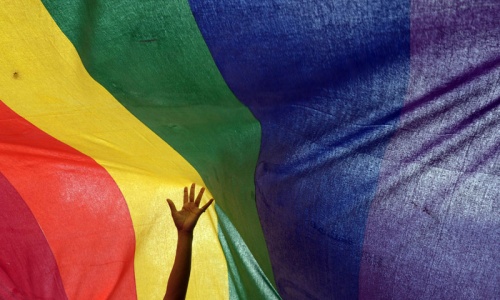NEW DELHI: India's top court Tuesday rejected a plea filed by the government and activist groups to review its shock ruling which reinstated a colonial-era ban on gay sex.
A Supreme Court bench dismissed petitions filed by the government and rights groups against a verdict last month that recriminalised gay sex and made it an offence punishable by up to life imprisonment.
“We see no reason to interfere with the order impugned. The review petitions are dismissed,” Supreme Court Justices H.L. Dattu and S.J. Mukhopadhaya said in their decision.
In its Dec 11 ruling, the top court reversed a lower court verdict from 2009 which had set aside a 1860 law outlawing “carnal intercourse against the order of nature”.
The Congress-led government filed the so-called review petition amid an outcry among activists against the December judgement.
It asked the Supreme Court to reconsider its decision to “avoid a grave miscarriage of justice to thousands of LGBT (lesbian, gay, bisexual and transgender) individuals”.
The government added in its petition that the ruling upholding the more than 150-year-old law was “violative of the principle of equality”.
Anand Grover, lawyer for the gay rights activist group Naz Foundation, said he was “shocked” by the Supreme Court's decision Tuesday to reject the review petitions.
But Grover told AFP that though “this battle may be lost, the war will still go on”.
The Supreme Court said in its Dec 11 ruling that responsibility for changing the law rested with lawmakers and not the courts in the sexually conservative nation.
The government and gay rights groups now have the option of filing a “curative petition”, which is the last stage of the legal appeal process and is intended to remedy gross miscarriages of justice.
But lawyers say the chances of success for such petitions are slim and the controversial issue now will likely land in parliament's lap, meaning the law could take years to change.
Observers say they see virtually no possibility parliament can reverse the law in the immediate future before national elections due by May.
The conservative Hindu nationalist Bharatiya Janata Party looks set to form the next government, according to polls.














































